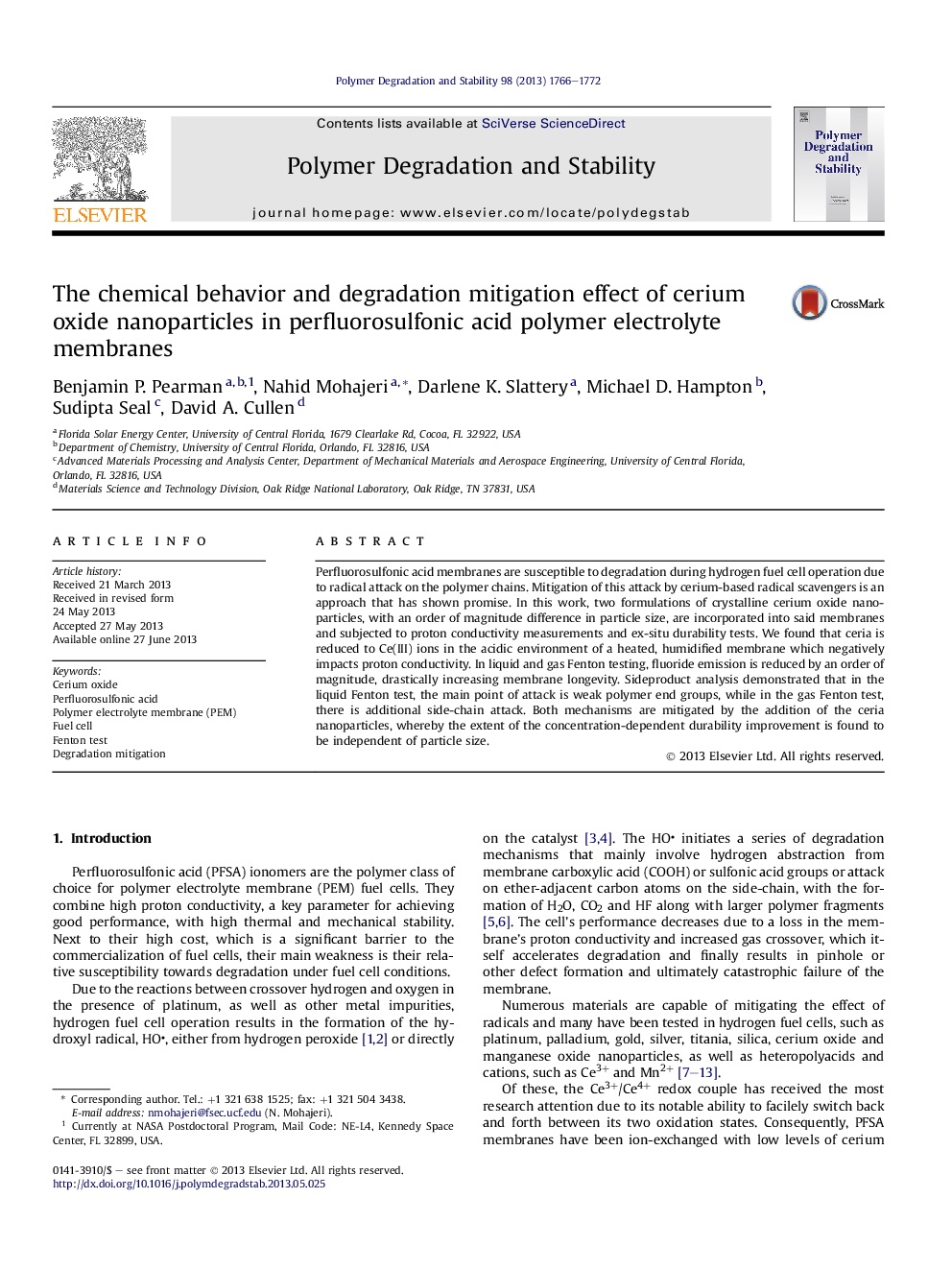| Article ID | Journal | Published Year | Pages | File Type |
|---|---|---|---|---|
| 5202032 | Polymer Degradation and Stability | 2013 | 7 Pages |
Abstract
Perfluorosulfonic acid membranes are susceptible to degradation during hydrogen fuel cell operation due to radical attack on the polymer chains. Mitigation of this attack by cerium-based radical scavengers is an approach that has shown promise. In this work, two formulations of crystalline cerium oxide nanoparticles, with an order of magnitude difference in particle size, are incorporated into said membranes and subjected to proton conductivity measurements and ex-situ durability tests. We found that ceria is reduced to Ce(III) ions in the acidic environment of a heated, humidified membrane which negatively impacts proton conductivity. In liquid and gas Fenton testing, fluoride emission is reduced by an order of magnitude, drastically increasing membrane longevity. Sideproduct analysis demonstrated that in the liquid Fenton test, the main point of attack is weak polymer end groups, while in the gas Fenton test, there is additional side-chain attack. Both mechanisms are mitigated by the addition of the ceria nanoparticles, whereby the extent of the concentration-dependent durability improvement is found to be independent of particle size.
Related Topics
Physical Sciences and Engineering
Chemistry
Organic Chemistry
Authors
Benjamin P. Pearman, Nahid Mohajeri, Darlene K. Slattery, Michael D. Hampton, Sudipta Seal, David A. Cullen,
